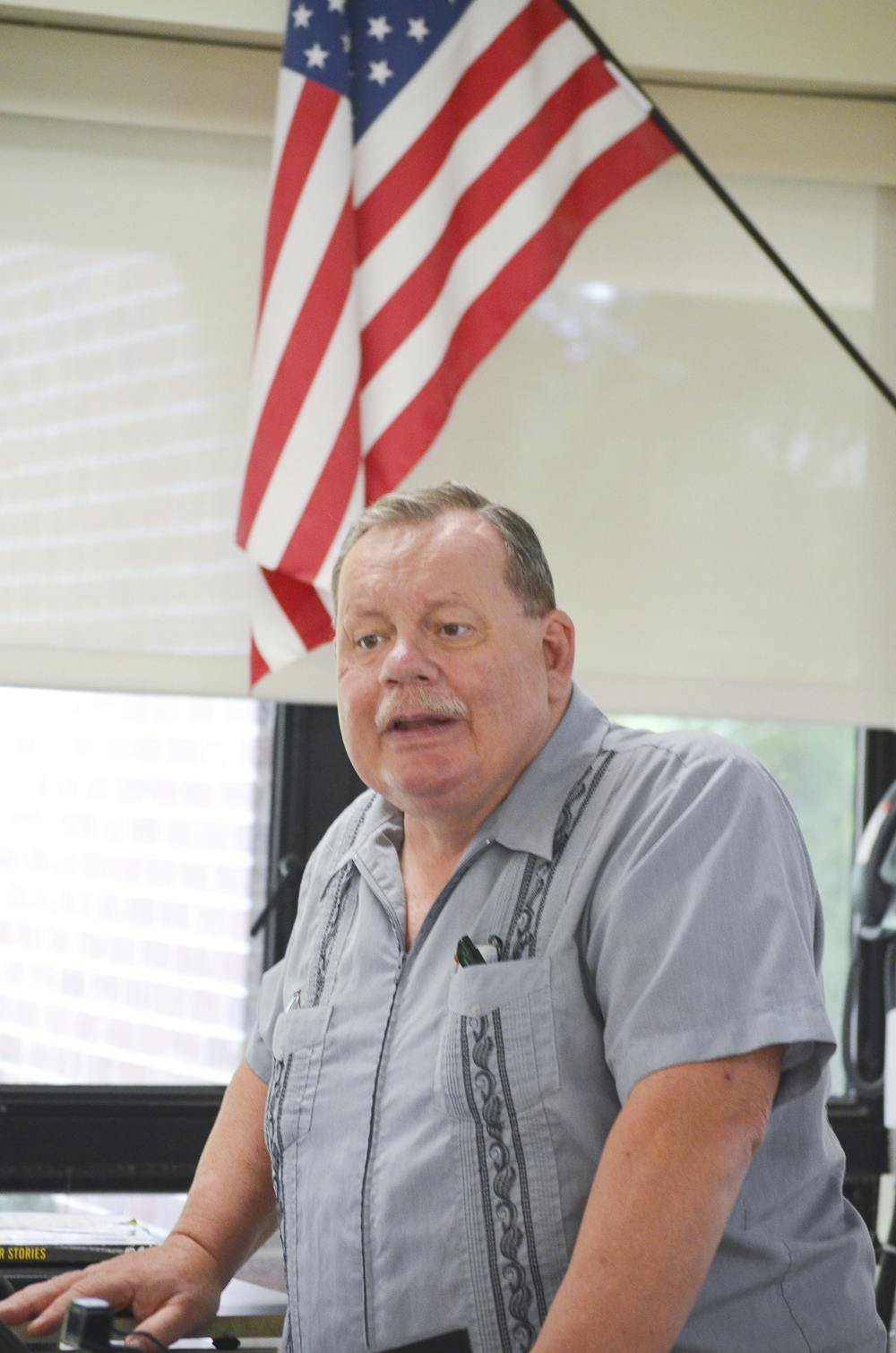After the brutal murders of two American journalists abroad, one UF professor is giving his insight on the state of international journalism.
The death of Steven Sotloff captured national attention when a video of his beheading by the Islamist terrorist group known as ISIS was released online Tuesday. Sotloff was held for a year before his murder.
Journalists James Foley and Sotloff were and beheaded by the Islamic State of Iraq and Syria.
UF adjunct professor Terry Anderson is a former Associated Press chief Middle East correspondent.
The first time he met his second daughter, she was 7 years old.
He spent the first half of her life as a hostage in Beirut, Lebanon.
He was captured in 1985 by Shiite militants while covering the civil war in Lebanon. He was later released in 1991.
Anderson is sharing his personal experience with terrorism by teaching a course at the UF College of Journalism and Communications called international journalism.
He said he is aiming to teach aspiring journalists about the dangers of visiting conflict areas, which has become more dangerous in recent years.
“The world has become more dangerous than it was 35 years ago,” he said. “[Students] need to know how to be more safe when in these dangerous situations.”
This knowledge comes after the abduction of James Foley, a freelance war correspondent, who was kidnapped by a Syrian militia in 2012. Sotloff’s capture followed suit in 2013, also in Syria, by ISIS.
The United States policy for dealing with terrorists is to deny any negotiations, but when terrorist organizations are kidnapping journalists to make headlines, that promise becomes difficult to keep.
Richard S. Conley, UF associate professor of political science, said it is an undesirable and tragic situation for all people involved in an international kidnapping.
“It used to be that terrorists used to capture headliners,” Conley said. “Now, they’re focusing on the media and people in the press.”
Conley said there is no clear answer as to what the right policy for dealing with terrorists should be.
“The president continues to say the goal is not to eradicate ISIS but rather to trim it back,” he said. “It’s a strange policy, in my mind. Why wouldn’t you want to eradicate them?”
Anderson, who has taught at multiple journalism schools, said journalists do not have to make any mistakes at all for them to become hostages while working abroad.
“Just being in a dangerous area is all it takes,” he said. “It isn’t a journalist’s fault for what happens, it’s the terrorists’ fault. You cannot blame the victim.”
Journalism students have expressed their own opinions about their future occupations.
Steven Zhang, a 20-year-old UF junior and journalism student, said the recent killings by the ISIS are not going to deter him.
“I do think that what has happened is scary,” he said. “But at the end of the day, all they were doing was their jobs. If terrorists are going to kill people for reporting the news then that makes them pathetic.”
Zhang, an international student from China, said he hopes to report on important issues that affect people’s lives. The execution of two American journalists fits that category.
“It’s one of those issues that needs to be reported because people need to know what’s going on,” he said.
UF finance sophomore Emily Weiss, the 19-year-old cousin of Sotloff, found out about his death during her Stress & Anxiety Management class.
“I just got an outpour of texts,” she said. “My stomach dropped and I knew. Then I saw the updated message from the Washington Post app on my phone and I had to get out of there.”
Sotloff studied at UCF for two years before he moved to Israel. He was offered a teaching position before he was abducted.
Weiss said every day of his disappearance was a constant worry and what got her through was his love of life.
“I knew he wouldn’t want us to constantly worry about him,” she said.
According to Weiss, Sotloff only wanted to report the truth.
“He was truly an adventure,” she said. “He wanted to be where the action was, he was very, very passionate.”
[A version of this story ran on page 1 on 9/4/2014 under the headline "UF professor shares personal experience with terror abroad"]
Terry Anderson shares his experience as a reporter in the Middle East on Wednesday during his international journalism class in Weimer Hall. Anderson was held by Shiite Hezbollah militants while reporting for The Associated Press from 1985 to 1991.






